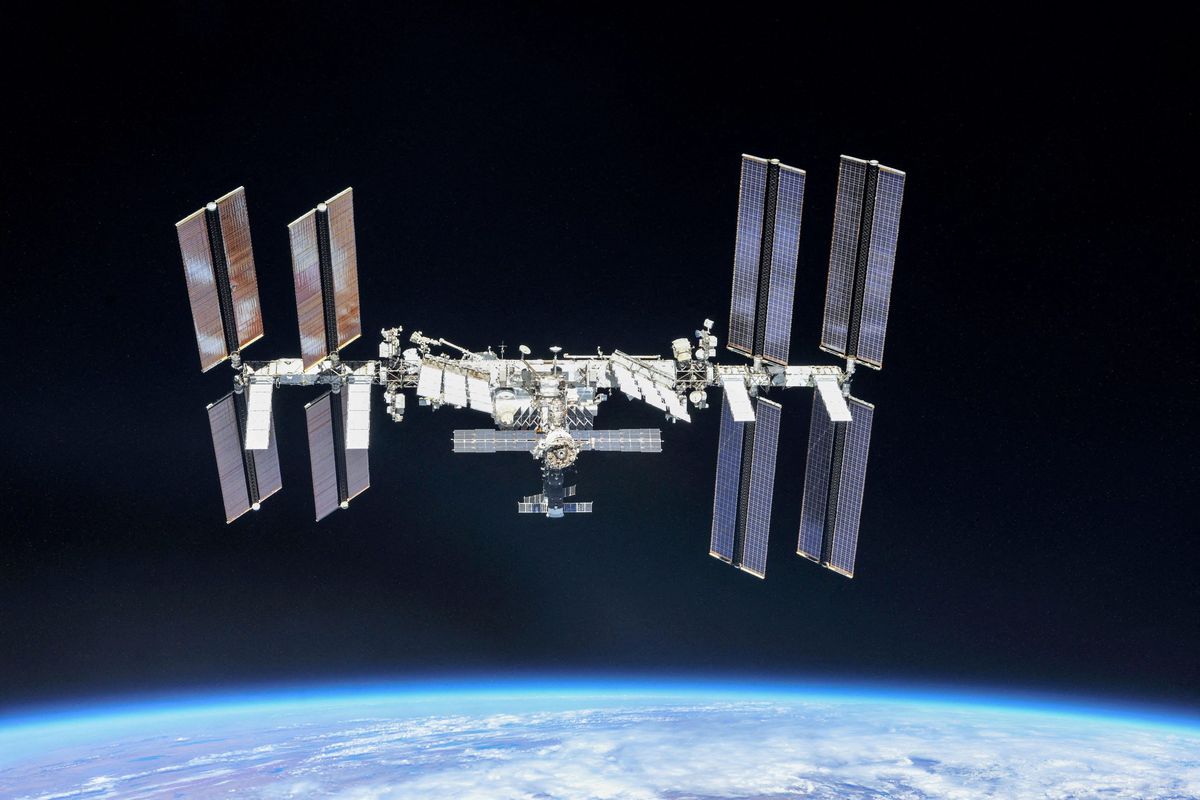Russia may leave the ISS by 2024. Here’s what you need to know

A few minutes every morning is all you need.
Stay up to date on the world's Headlines and Human Stories. It's fun, it's factual, it's fluff-free.
Once upon a time, having the tech to be in space was a competition between Russia and the US. But in the 70s, as the race to the moon was getting smaller in the rearview mirror, American astronauts and Russian cosmonauts began to work together. By the 90s, the two countries built the International Space Station (ISS) together.
But that cooperation may be coming to an end, as the new head of Russia’s space agency, Roscosmos, said that Russia would stop putting astronauts up in the ISS after its commitment ends in 2024. After that point, Roscosmos head Yuri Borisov said that the organization would turn toward an independent station.
The move is likely in response to escalating tensions between Russia and the US after Russia’s invasion of Ukraine, but it also means that it throws a wrench in the final years of the space station’s usage, as NASA plans to operate it through 2030. US officials said they’d seen the public statements, but they haven’t yet formally received notice from Russia that this was its course of action.
Key comments:
“We will certainly meet our obligations before our partners, but we have decided to leave this station after 2024," said Yuri Borisov in a discussion with Russian President Putin. “I believe that we will start building a Russian orbital station by that time."
John Kirby, spokesman for the National Security Council, told reporters the US is “exploring options to mitigate any potential impacts on the ISS beyond 2024 if, in fact, Russia withdraws." He added, “That’s the responsible thing to do having seen these reports. For our part, we’re gonna remain committed to working with all the ISS partners to ensure its safe operation, and, of course, the safety and security of the astronauts on board."
“You can’t have an amicable divorce," Garrett Reisman, a retired NASA astronaut and current astronautical engineering professor at the University of Southern California, told Reuters in an interview. “We’re kind of stuck together."




Comments ()